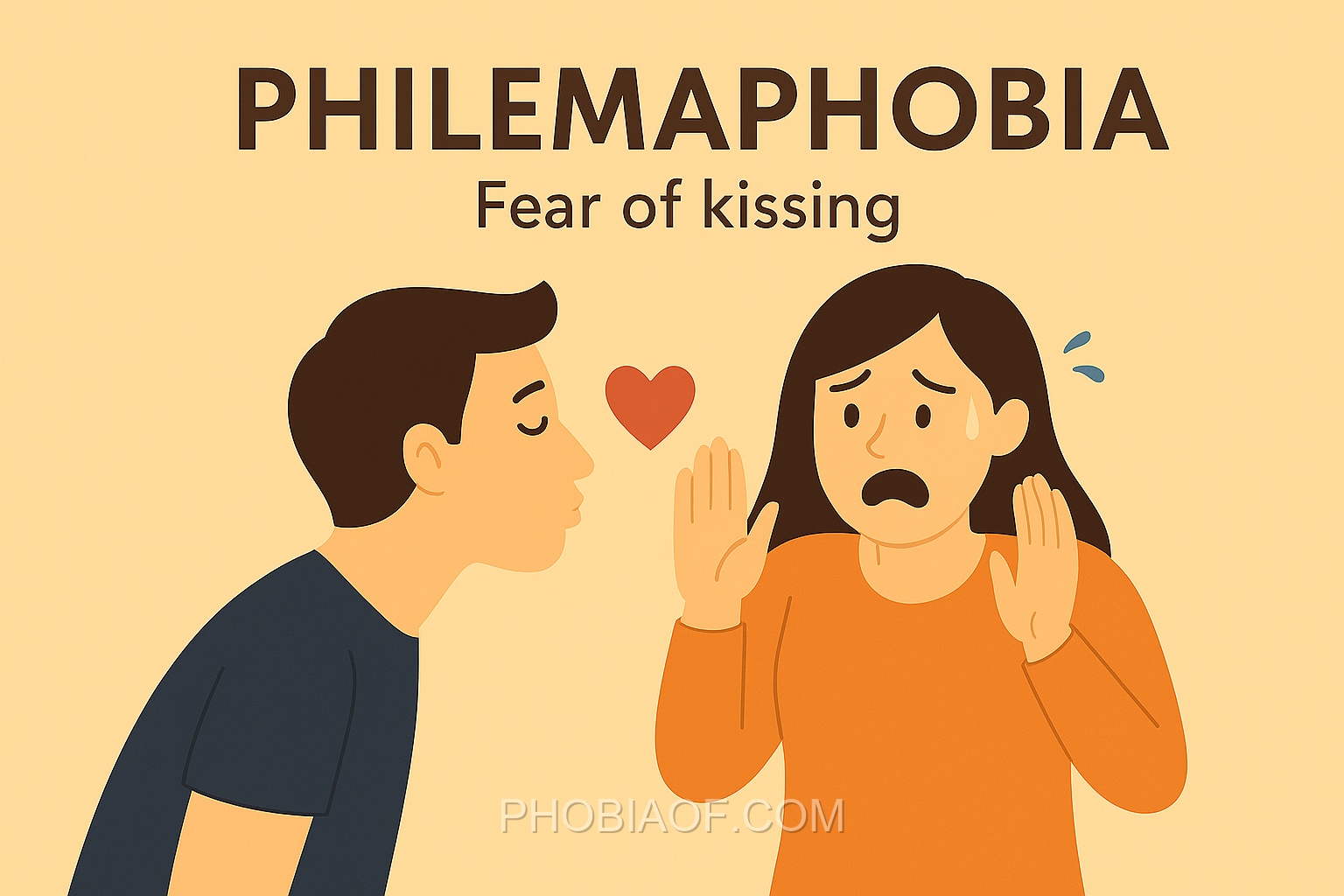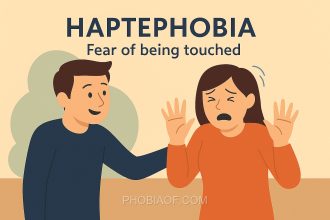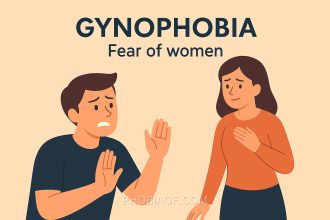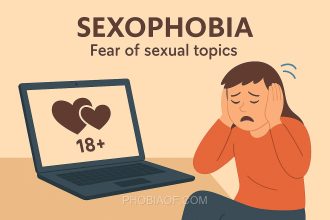Have you ever felt a flutter of nervousness at the thought of sharing a kiss? For some, this anxiety goes beyond mere butterflies and blossoms into a full-fledged fear known as Philemaphobia. But what exactly is Philemaphobia?
In simple terms, Philemaphobia is the fear of kissing. The term comes from the Greek words “philema,” meaning kiss, and “phobos,” meaning fear. This phobia can manifest in various ways, from a mild reluctance to engage in kissing to a debilitating dread that might lead someone to avoid romantic relationships altogether.
For those affected, Philemaphobia can profoundly impact their social and romantic lives. It might cause them to feel isolated or misunderstood, as kissing is often seen as a natural and enjoyable part of human interaction. This fear can lead to anxiety, stress, and even feelings of inadequacy, as individuals struggle to navigate situations where kissing is expected or desired.
Understanding Philemaphobia is crucial for fostering empathy and support for those who experience it. By shedding light on this often-overlooked fear, we can help destigmatize it and encourage those affected to seek help if needed. Whether it’s through therapy, self-help strategies, or simply having open conversations, addressing Philemaphobia can lead to healthier, more fulfilling relationships for everyone involved.
Causes of Philemaphobia
Philemaphobia, the fear of kissing, can be distressing and can interfere with personal relationships. Understanding its causes can help in addressing the phobia. Below are some potential reasons why someone might develop philemaphobia:
- Genetic Predisposition:
Some individuals may have a genetic predisposition to anxiety disorders, which can include phobias like philemaphobia. If a person has family members who suffer from similar anxieties, they might be more likely to develop a fear of kissing.
- Traumatic Experiences:
Negative or traumatic experiences related to kissing can contribute to the development of philemaphobia. For example, a person who has had a distressing first kiss or experienced rejection might associate kissing with anxiety.
- Learned Behavior:
Philemaphobia can also result from learned behaviors. If someone grows up in an environment where kissing is viewed negatively or associated with discomfort, they may develop a fear of kissing themselves.
- Psychological Factors:
Other psychological factors, such as low self-esteem or fear of intimacy, can play a role in the development of philemaphobia. Individuals who struggle with these issues may find the act of kissing overwhelming or frightening.
- Environmental Influences:
Cultural or societal norms that place a strong emphasis on the significance of kissing can also contribute to anxiety. Some people may fear not meeting these expectations, which can lead to philemaphobia.
Interestingly, research suggests that phobias may develop through a combination of these factors, rather than a single cause. Understanding the multifaceted origins of philemaphobia can aid in its treatment, allowing individuals to address both the psychological and environmental aspects of their fear.
Symptoms of Philemaphobia
Philemaphobia, the fear of kissing, is characterized by an intense and often overwhelming anxiety or fear when faced with the prospect of kissing. This phobia can manifest in various physical, emotional, and behavioral symptoms, impacting an individual’s ability to engage in social or romantic situations. Recognizing these symptoms can be the first step towards understanding and addressing the phobia.
Physical Symptoms:
- Panic attacks characterized by shortness of breath, dizziness, or chest pain
- Excessive sweating, especially in situations involving potential kissing
- Rapid heartbeat or palpitations when thinking about or confronted with kissing
- Nausea or upset stomach at the thought of kissing
- Trembling or shaking when in close proximity to a potential kissing scenario
Emotional and Behavioral Symptoms:
- Overwhelming dread or fear at the thought of kissing someone
- Strong desire to avoid situations where kissing might occur, such as dates or romantic settings
- Feelings of embarrassment or shame regarding the fear of kissing
- Persistent worry or obsessive thoughts about the possibility of being kissed
- Reluctance to enter into or maintain relationships that might involve kissing
When severe, these symptoms can significantly interfere with daily life, affecting personal relationships and social interactions.
Treatment for Philemaphobia
Philemaphobia, or the fear of kissing, can be a challenging phobia to manage, but it’s important to remember that it is treatable and manageable over time. With the right approach and dedication, you can overcome this fear and enjoy meaningful connections with others.
Proven Therapies
- Exposure Therapy: This therapy involves gradually facing the fear of kissing in a controlled and safe environment. By slowly exposing yourself to the act of kissing, you can reduce your anxiety over time and build confidence.
- Cognitive-Behavioral Therapy (CBT): CBT helps you identify and change the fearful thoughts and negative patterns associated with kissing. By reframing your thoughts, you can reduce anxiety and build healthier relationships.
- Counseling: Engaging in one-on-one counseling sessions with a therapist can provide a supportive space to explore your fears and develop personalized strategies to overcome them.
Self-Help Coping Techniques
- Relaxation Exercises: Practice deep breathing, progressive muscle relaxation, or visualization techniques to calm your mind and body when faced with anxiety-provoking situations.
- Meditation: Regular meditation can help you cultivate mindfulness and reduce overall anxiety, making it easier to face your fears.
- Support Groups: Joining a support group for individuals dealing with similar phobias can provide encouragement, understanding, and shared experiences that aid in recovery.
Medication
In severe cases, medication such as anti-anxiety medication might be prescribed by a healthcare provider to help manage symptoms. However, therapy and coping skills are the primary focus for long-term recovery.
It’s crucial to seek professional help if your phobia is interfering with your daily life. Remember, overcoming philemaphobia is a journey, and you are not alone. With the right support and techniques, you can move towards a future free of fear and full of connection.
Conclusion
In understanding Philemaphobia, the fear of kissing, we uncover the various causes and symptoms that contribute to this often distressing phobia. By recognizing these factors, you equip yourself with the knowledge needed to address and navigate through these fears. Remember, acknowledging the problem is the first step towards finding a solution.
It’s important to remain hopeful and proactive on this journey. Many individuals have successfully managed or overcome their phobias with time and the right support. You are not alone, and there is help available. Consider reaching out to a therapist or talking to a doctor if you feel that additional support could benefit you.
Remember, taking action towards understanding and addressing your fears is a courageous step, and with persistence and the proper guidance, you can overcome Philemaphobia and embrace more fulfilling interactions.






